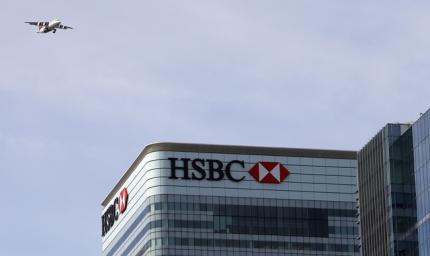
One of the main reasons HSBC is reviewing its domicile is the recent rise in the government’s bank levy – a charge on UK lenders’ balance sheets introduced in 2010 to offset the cost of the financial crisis for taxpayers.
The Financial Times has looked into HSBC’s tax payments in an attempt to shed light on the impact of a potential move away from the UK.
1. How much tax does HSBC pay?
The bank put a figure of $7.9bn on its net tax paid in its 2014 annual report. That is down from $8.6bn in 2013 and compares with the $18.7bn of pre-tax profit it made last year.
The taxman’s share of profits was below that of both HSBC’s employees, who were paid $20.4bn before tax last year, and its shareholders, who received $10.6bn in dividends.
The UK bank levy cost the bank $1.1bn last year, up more than a fifth from the previous year. Analysts at Bernstein estimate that if a Conservative-led government is re-elected the cost of the levy for HSBC could rise to $1.8bn by 2017.
The levy is a 0.21 per cent charge on the global balance sheet liabilities of all UK banks. Foreign banks also contribute, but they pay only a percentage of their UK liabilities.
HSBC says 58 per cent of its levy is for non-UK operations. So even if it left the UK, it would still have to pay as much as $750m towards the levy.
2. Where does HSBC pay most tax?
The bank paid $2.7bn of tax in Asia last year – more than a third of the total. That is slightly more than the $2.4bn of tax it paid in the UK.
Elsewhere, the taxmen of continental Europe collected $1.3bn from HSBC, while those in Latin America took a slightly higher amount.
In Hong Kong the bank paid $1.14bn of tax on its vast profits in the country. But in the UK the bank paid only $69m of corporation tax, up from a negative tax bill of $8m the previous year.
3. Why such a low UK tax bill?
The answer lies in the way the bank allocates many of its head office costs to its UK operations, even though most of these activities are global in scope.
The impact of these extra costs – including fines and penalties, stewardship and central management services, and regulatory and compliance programmes – drags down its overall UK performance.
Even though its retail and commercial banking units in the UK are among its biggest sources of profit outside of Asia, it still made an overall loss in its home market last year.
By raising costs and lowering profits in the UK, HSBC ensures it pays lower tax in a country with 20 per cent corporation tax, leaving more profit to be booked in countries with a lower tax rate, such as Hong Kong.
If it moved to Hong Kong, where corporation tax is 16.5 per cent, this benefit could be eroded as presumably many of its central costs would have to move with it.
That would lower its profits and tax in Hong Kong and push them up in the UK, which would mean a bigger share going to the taxman overall.

4. Will the bank be allowed to go?
When HSBC bought Midland Bank in 1992 it was forced to move its domicile from Hong Kong to London at the request of the Bank of England, which did not want one of the country’s clearing banks controlled by a foreign group.
It is an open question whether the UK regulator would allow the bank to move back to Hong Kong, or anywhere else. The Bank of England declined to comment.
But officials are likely to insist that if HSBC does leave the UK it must put its remaining operations into a separately capitalised subsidiary. Spain’s Santander has gone even further, imposing a voluntary block on moving capital out of the UK back to its parent in Madrid. The Bank of England sees this as model behaviour.
Like all big British banks, HSBC has to carve out its UK high street unit into a ringfenced entity by 2019 under the so-called Vickers reforms. It has started work on this already and recently said that its ringfenced unit will be based in Birmingham.
There is now speculation that a long-mooted spin-off of its UK operation via a public listing could be back on the agenda for HSBC as part of its review of whether to move abroad. Some observers have suggested calling the offshoot Midland Bank.
5. What about the others?
On Tuesday, Standard Chartered will report first-quarter results. The emerging markets-focused bank has – like HSBC – faced calls from investors to reconsider its UK domicile and is expecting to face more questions on this issue.
StanChart is expected to say that is listening to its shareholders. It is likely to launch a review of its domicile after the UK election. In theory, it would be easier for StanChart to move than HSBC because it has a much smaller UK operation.
Analysts have already started working out what would happen if both HSBC and StanChart were to leave the UK. Bernstein calculates that such a scenario would leave the government some £1.3bn-£1.7bn short on its annual bank levy projections.
The likely outcome is that the government will increase the required contribution of the remaining banks – hitting Barclays, Lloyds Banking Group and Royal Bank of Scotland particularly hard.
(c) 2015 The Financial Times Ltd.

